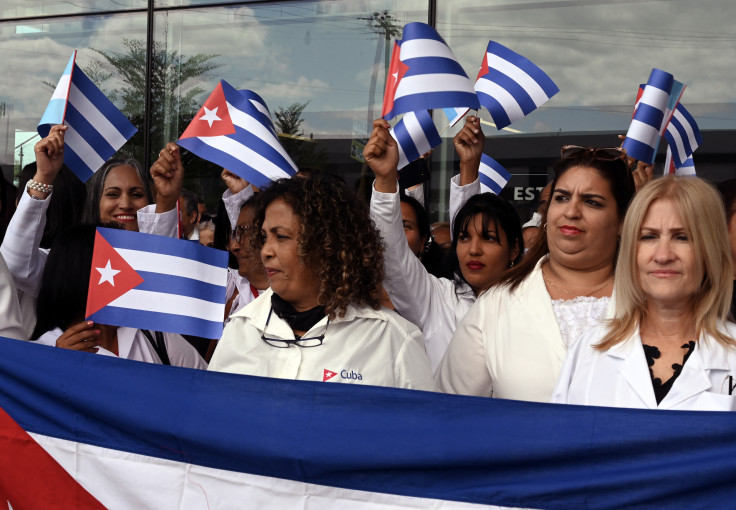
Several Mexican government officials may soon be barred from entering the United States under a new visa policy unveiled by Secretary of State Marco Rubio, aimed at pressuring allies over their ties with Cuba.
The issue dates back to a deal made in 2020, when Mexican President Claudia Sheinbaum was the head of government in Mexico City. Then-Secretary of Health (SEDESA) for Mexico City, Oliva López Arellano, formalized an agreement to bring 585 Cuban doctors across various specialties for an initial three months. The city government paid approximately 135.9 million pesos (around 7 million dollars at that time) through the Cuban state-run medical services company Comercializadora de Servicios Médicos Cubanos SA.
Originally slated for three months, the Cuban doctors' mission was extended by both Mexico City and the federal government under then-President Andrés Manuel López Obrador. By July 2024, at least 950 Cuban doctors were working across 23 Mexican states, with plans for an additional 2,700 to be deployed in specialized roles.
Now, the Mexican government officials who participated in the exchange with the Cuban government are now at risk of U.S. visa restrictions. While the initial focus was on Central America, the policy's language suggests expansion to other nations, including Mexico, whose government engaged with Cuba's medical missions. Rubio labeled these Cuban medical programs as "forced labor" and accused officials who enabled them of exploiting professionals for the benefit of the Cuban regime. He emphasized that families of implicated individuals would also face travel restrictions.
Several of the Mexico City officials involved in the exchange with the Cuban government have transitioned to the federal government with Sheinbaum's election as president last year. Senior officials at risk of facing visa restrictions include Arellano, as well as Luz Elena González Escobar, who is currently Mexico's Secretary of Energy and formerly Secretary of Administration and Finance for Mexico City under Sheinbaum.
Presidenta de #México sobre restricciones de visas aplicaría EEUU a funcionarios que participan en cooperación médica de #Cuba: "Primero no es trabajo forzado, no. Bueno, tendrían que demostrarlo. En el caso de México hay un contrato con Cuba y otros países...(1/2) pic.twitter.com/9NLtGgOFr9
— Eugenio Martínez Enríquez (@EugenioMtnez) June 4, 2025
Other officials include Juan Antonio Ferrer Aguilar, the then-director general of the national public health institute Insabi, turned UNESCO representative, and Jesús Antonio Garrido Ortigosa, Sheinbaum's then-director General of Administration and Finance at SEDESA.
President Sheinbaum has responded to Rubio's claims, stating, "First, it is not forced labor, no. Well, they would have to prove it. In the case of Mexico, there is a contract with Cuba and other countries because of the problem Mexico had during the neoliberal period, where they stopped training doctors, so there's a contract with Cuban doctors to help the population in Mexico. So, we don't see any problem with that; it's legal, it's open, and there are no problems."
Since the 1960s, the Cuban government has sent tens of thousands of doctors and health professionals abroad as part of its foreign policy strategy, providing humanitarian aid in over 100 countries.
This practice, which began shortly after the 1959 revolution, has played a key role in Cuba's global image. The first major mission was in Algeria in 1963, and since then, Cuban doctors have worked in regions struck by disaster, poverty, or epidemic. Critics, including the U.S. government, have alleged that the missions often exploit the medical workers, citing strict state control over wages and mobility. Cuba, however, defends the programs as a pillar of international solidarity and a critical source of revenue for its economy.
© 2025 Latin Times. All rights reserved. Do not reproduce without permission.






